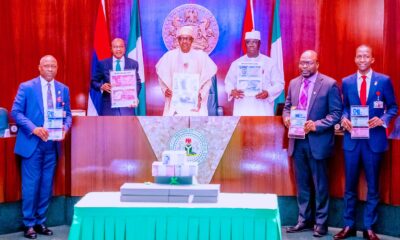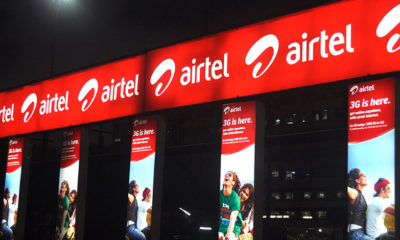Last week, top telecommunication firm, Airtel Nigeria announced that it has partnered with audio streaming service, Spotify to provide data bonuses for its customers to access unlimited local and foreign audio content on the musical platform. The complimentary data comes at a time when Nigerian artistes and their music have begun appealing to a global audience.
When Spotify launched its service in Nigeria last year, the world’s largest streaming service became the 13th audio-streaming platform to launch in Nigeria. Before then, Nigerians accessed the platform’s services with the aid of a Virtual Private Network (VPN). Shortly after its launch, Spotify established a payment network with Nigerian banks, accepting to operate in Naira, rather than in U.S Dollars, which is at a higher rate.
Outside Nigeria and parts of Africa, it is present in, Spotify’s cheapest monthly subscription plan available to students costs $4.99 (N2,085). Its main plan goes for $10 (N4170). As a monthly subscription, the price is quite high for an economy where two-thirds of its citizens live below $2 a day.
To cater to young Nigerians, who are the highest users of the audio-streaming service, Spotify had to slash its high prices, demanding similar prices to Apple Music and Youtube Music. Students here are required to pay N450 ($1.09) for a monthly plan. This is still the least, compared to individual plans that goes for N900 ($2.19) and family plans going for N1,400 ($3.40).
Although the prices are slashed, many Nigerians are still not able to afford it, making the partnership with Airtel Nigeria feel like a solution to ease streaming prices.
Airtel Spotify bonus
According to Airtel, customers who purchase weekly and monthly data bundles, will receive complimentary data bonuses to stream music and podcast audios unlimitedly, on Spotify, without having to worry about additional data costs.
Investors King learned that if a student subscriber on Spotify gets the N450 subscription plan, your daily Airtel data purchase at N100, specifically for streaming, will allow you access to unlimited local and foreign audio content that will last for 3 days.
How the Bonus can be Used:
On Airtel Streaming, customers can purchase daily, weekly or monthly data subscriptions, allowing them to stream unlimitedly for the given number of days their purchase covers. Airtel Streaming has been designed for streaming on selected platforms, including Spotify.
That is, once you subscribe for Spotify, depending on whatever plan you want, your data purchase for that day, week, or month will come with bonuses that ensure you keep streaming your beloved song or podcast.
A N2000 data purchase for a month, say February, on Airtel Streaming, offers customers 7 gigabytes (GB). Spotify subscribers who buy this data plan will not be limited by a ‘low data’ notification as they can still access their favourite songs on the platform, till February, which the data plan covers ends.
For 30 days also, customers can pay for 15GB worth of data at N3,000, and N5,000 for 30GB. Both data plans on Airtel Streaming will not limit the number of musical content a user has in a month, as bonuses through Airtel’s partnership with Spotify will be made available unlimitedly. Customers are to dial *141# to receive more guidelines.


 Naira3 weeks ago
Naira3 weeks ago
 News4 weeks ago
News4 weeks ago
 Naira4 weeks ago
Naira4 weeks ago
 Naira3 weeks ago
Naira3 weeks ago
 Jobs4 weeks ago
Jobs4 weeks ago
 Travel3 weeks ago
Travel3 weeks ago
 Naira3 weeks ago
Naira3 weeks ago
 Investment4 weeks ago
Investment4 weeks ago



























